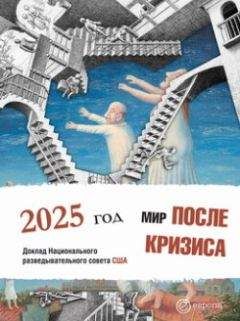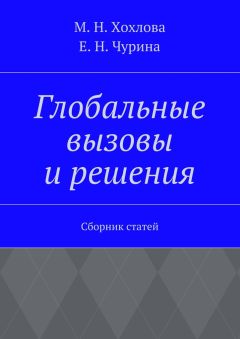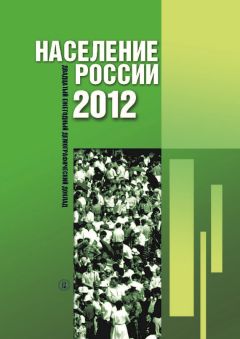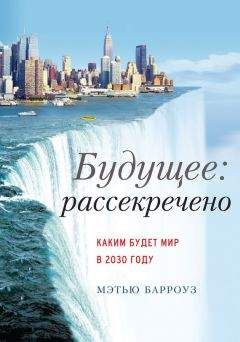Oscar Wilde - The Happy Prince and Ohter Tales
“Look, look (смотри)!” cried the Tree, “the rose is finished now (роза теперь завершена = теперь стала красной)”; but the Nightingale made no answer (но Соловей не ответил; to make (made) — делать, изготавливать; в сочетании с существительным выражает действие, соответствующее значению существительного; answer — ответ), for she was lying dead (так как он лежал мертвый; to lie (lay, lain)) in the long grass (в высокой траве; long — длинный), with the thorn in her heart (с шипом в сердце).
burst [bə:st] linger ['lingə] ecstasy ['ekstəsi] shepherd ['∫epəd]
Then she gave one last burst of music. The white Moon heard it, and she forgot the dawn, and lingered on in the sky. The red rose heard it, and it trembled all over with ecstasy, and opened its petals to the cold morning air. Echo bore it to her purple cavern in the hills, and woke the sleeping shepherds from their dreams. It floated through the reeds of the river, and they carried its message to the sea.
“Look, look!” cried the Tree, “the rose is finished now”; but the Nightingale made no answer, for she was lying dead in the long grass, with the thorn in her heart.
And at noon the Student opened his window (в полдень Студент открыл /свое/ окно) and looked out (и выглянул /в сад/).
“Why, what a wonderful piece of luck (ба, какое удивительное везение: «редкая удача»; why — зд. междометие — как! ба! /выражает удивление/; piece — кусок, часть, зд.исп. в выражении: piece of luck — удача, luck — судьба, случай; удача, везенье)!” he cried (вскричал он); “here is a red rose (вот и красная роза)! I have never seen any rose like it (я никогда не видел ни одной подобной розы: «ни одной розы, подобной этой»; to see (saw, seen)) in all my life (за всю свою жизнь). It is so beautiful (она настолько прекрасна) that I am sure (что я уверен) it has a long Latin name (что у нее длинное латинское название; name — имя, фамилия; название)”; and he leaned down (и он наклонился = высунулся из окна) and plucked it (и сорвал ее).
Then he put on his hat (затем он надел /свою/ шляпу; to put on), and ran up to the Professor’s house (и побежал к дому Профессора; to run (ran, run)) with the rose in his hand (с розой в руке).
Latin ['lætin] pluck [plλk] professor [prə'fesə]
And at noon the Student opened his window and looked out.
“Why, what a wonderful piece of luck!” he cried; “here is a red rose! I have never seen any rose like it in all my life. It is so beautiful that I am sure it has a long Latin name”; and he leaned down and plucked it.
Then he put on his hat, and ran up to the Professor’s house with the rose in his hand.
The daughter of the Professor was sitting in the doorway (дочь Профессора сидела у порога: «в дверях»; doorway — вход в помещение, дверной проем) winding blue silk on a reel (наматывая синюю шелковую /нить/ на катушку; to wind — виться, извиваться; наматывать), and her little dog was lying at her feet (и ее маленькая собачка лежала у ее ног).
“You said that you would dance with me (Вы сказали, что /вы/ будете танцевать со мной) if I brought you a red rose (если я принесу Вам красную розу; to bring (brought)),” cried the Student (воскликнул Студент). “Here is the reddest rose in all the world (вот самая красная роза на всем свете). You will wear it to-night (вы приколите: «вы наденете» ее сегодня вечером; to wear (wore, worn) — быть одетым, носить /одежду/) next your heart (рядом со своим сердцем), and as we dance together (и когда мы будем танцевать /вместе/) it will tell you (она расскажет Вам) how I love you (как я люблю Вас).”
But the girl frowned (но девушка нахмурилась; to frown — хмурить брови, насупиться).
“I am afraid (боюсь) it will not go with my dress (что она не подойдет к моему платью; to go — идти, ходить, to go with smth. — подходить к чему-либо, гармонировать с чем-либо),” she answered (ответила она); “and, besides (и, к тому же), the Chamberlain’s nephew (племянник Гофмейстера) has sent me some real jewels (прислал мне настоящие драгоценности; to send (sent), some — какой-нибудь, некоторый, некоторое количество), and everybody knows (и каждый знает) that jewels cost far more than flowers (что ювелирные украшения стоят гораздо больше, чем цветы; jewel — драгоценный камень; ювелирная вещь).”
wind [waind] chamberlain ['t∫eimbəlin] jewel ['dζu:əl]
The daughter of the Professor was sitting in the doorway winding blue silk on a reel, and her little dog was lying at her feet.
“You said that you would dance with me if I brought you a red rose,” cried the Student. “Here is the reddest rose in all the world. You will wear it to-night next your heart, and as we dance together it will tell you how I love you.”
But the girl frowned.
“I am afraid it will not go with my dress,” she answered; “and, besides, the Chamberlain’s nephew has sent me some real jewels, and everybody knows that jewels cost far more than flowers.”
“Well, upon my word (ну, честное слово), you are very ungrateful (вы чрезвычайно: «очень» неблагодарны; grateful — благодарный, признательный),” said the Student angrily (сказал Студент сердито; angry — сердитый, гневный, раздраженный); and he threw the rose into the street (и он бросил розу на землю: «на мостовую»; to throw (threw, thrown), street — улица, мостовая), where it fell into the gutter (/где/ она упала в колею; to fall (fell, fallen), gutter — желоб, сточная канава), and a cart-wheel went over it (и по ней проехалось колесо телеги; cart — телега, повозка, wheel — колесо; to go (went, gone)).
“Ungrateful (неблагодарный)!” said the girl (сказала девушка). “I tell you what (я вот что вам скажу), you are very rude (вы очень грубы); and, after all, who are you (и, в конце концов, кто вы такой)? Only a Student (всего лишь Студент; only — только, исключительно). Why, I don’t believe (ба, да я /даже/ не думаю; to believe — верить; думать, полагать) you have even got silver buckles to your shoes (что у вас /даже/ есть серебряные пряжки для /ваших/ башмаков/туфлей) as the Chamberlain’s nephew has (какие есть у племянника Гофмейстера)”; and she got up from her chair (и она поднялась со своего кресла; to get (got) up — вставать, подниматься) and went into the house (и ушла в дом; to go (went, gone)).
ungrateful [λn'greitf(ə)l] rude [ru:d] nephew ['nef|ju:, 'nev-]
“Well, upon my word, you are very ungrateful,” said the Student angrily; and he threw the rose into the street, where it fell into the gutter, and a cart-wheel went over it.
“Ungrateful!” said the girl. “I tell you what, you are very rude; and, after all, who are you? Only a Student. Why, I don’t believe you have even got silver buckles to your shoes as the Chamberlain’s nephew has”; and she got up from her chair and went into the house.
“What a silly thing Love is (какая глупость эта Любовь; silly — неумный, неразумный, глупый; thing — вещь, предмет),” said the Student as he walked away (сказал Студент, пока он шел обратно: «уходил»). “It is not half as useful as Logic (она и наполовину не такая полезная, как Логика), for it does not prove anything (так как она не доказывает ничего), and it is always telling one of things (и она всегда обещает: «говорит о» события; to tell — рассказывать, говорить; thing — вещь, предмет; событие) that are not going to happen (которые не случатся/не произойдут), and making one believe things (и заставляет тебя верить в вещи; to make — делать; to make smb. do smth. — заставлять, вынуждать кого-либо делать что-либо) that are not true (которые ложны: «неправильные»; true — верный, правильный). In fact, it is quite unpractical (на самом-то деле, она совершенно непрактична), and, as in this age to be practical is everything (и, так как в наше время: «в этот век» быть практичным — значит: «есть» все; age — возраст; век, эпоха), I shall go back to Philosophy (я вернусь к Философии; to go back — возвращаться /на прежнее место/; вернуться /к теме и т.п./) and study Metaphysics (и буду изучать Метафизику).”
So he returned to his room (и он вернулся в свою комнату) and pulled out a great dusty book (и вытащил огромную запыленную книгу; dust — пыль), and began to read (и начал читать).
logic ['lOdζik] true [tru:] metaphysics ["metə'fiziks]
“What I a silly thing Love is,” said the Student as he walked away. “It is not half as useful as Logic, for it does not prove anything, and it is always telling one of things that are not going to happen, and making one believe things that are not true. In fact, it is quite unpractical, and, as in this age to be practical is everything, I shall go back to Philosophy and study Metaphysics.”
So he returned to his room and pulled out a great dusty book, and began to read.
The Selfish Giant
Every afternoon (каждый день; afternoon — время после полудня /до заката/), as they were coming from school (когда они возвращались: «шли» из школы), the children used to go and play in the Giant’s garden (дети привыкли заходить поиграть в сад Великана; used to do smth. — иметь в прошлом обыкновение делать что-либо).




